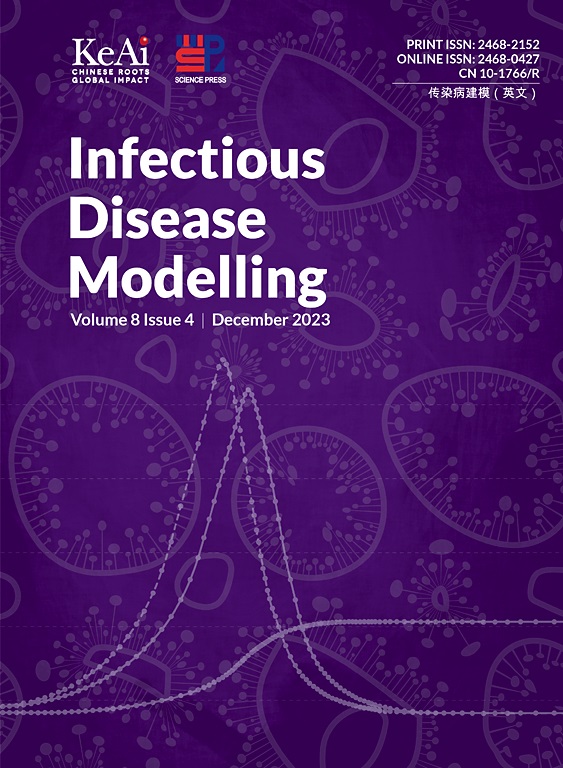梯度提升:马尔科夫链蒙特卡罗抽样的高效计算替代方案,用于拟合大型贝叶斯时空二项式回归模型
IF 2.5
3区 医学
Q1 Medicine
引用次数: 0
摘要
疾病预测和监测通常需要对收集到的大量时空历史检测数据进行模型拟合。使用马尔可夫链蒙特卡罗(MCMC)方法拟合的贝叶斯时空回归模型常用于此类数据。当模型的时空支持较大时,实施 MCMC 算法就会成为一个巨大的计算负担。本研究提出了一种计算高效的梯度提升算法,用于拟合贝叶斯时空混合效应二叉回归模型。我们在一个疾病预测模型上演示了我们的方法,并将其与计算优化的 MCMC 方法进行了比较。这两种方法都用于对美国毗连地区家犬的莱姆病、无形体病、埃立克病和心虫病进行月度预测。数据的空间支持为 3108 个县,时间支持为 108-138 个月,检测结果为 7100-13500 万个。所提出的估算方法比优化的 MCMC 算法快几个数量级,但平均绝对预测误差相似。本文章由计算机程序翻译,如有差异,请以英文原文为准。
Gradient boosting: A computationally efficient alternative to Markov chain Monte Carlo sampling for fitting large Bayesian spatio-temporal binomial regression models
Disease forecasting and surveillance often involve fitting models to a tremendous volume of historical testing data collected over space and time. Bayesian spatio-temporal regression models fit with Markov chain Monte Carlo (MCMC) methods are commonly used for such data. When the spatio-temporal support of the model is large, implementing an MCMC algorithm becomes a significant computational burden. This research proposes a computationally efficient gradient boosting algorithm for fitting a Bayesian spatio-temporal mixed effects binomial regression model. We demonstrate our method on a disease forecasting model and compare it to a computationally optimized MCMC approach. Both methods are used to produce monthly forecasts for Lyme disease, anaplasmosis, ehrlichiosis, and heartworm disease in domestic dogs for the contiguous United States. The data have a spatial support of 3108 counties and a temporal support of 108–138 months with 71–135 million test results. The proposed estimation approach is several orders of magnitude faster than the optimized MCMC algorithm, with a similar mean absolute prediction error.
求助全文
通过发布文献求助,成功后即可免费获取论文全文。
去求助
来源期刊

Infectious Disease Modelling
Mathematics-Applied Mathematics
CiteScore
17.00
自引率
3.40%
发文量
73
审稿时长
17 weeks
期刊介绍:
Infectious Disease Modelling is an open access journal that undergoes peer-review. Its main objective is to facilitate research that combines mathematical modelling, retrieval and analysis of infection disease data, and public health decision support. The journal actively encourages original research that improves this interface, as well as review articles that highlight innovative methodologies relevant to data collection, informatics, and policy making in the field of public health.
 求助内容:
求助内容: 应助结果提醒方式:
应助结果提醒方式:


